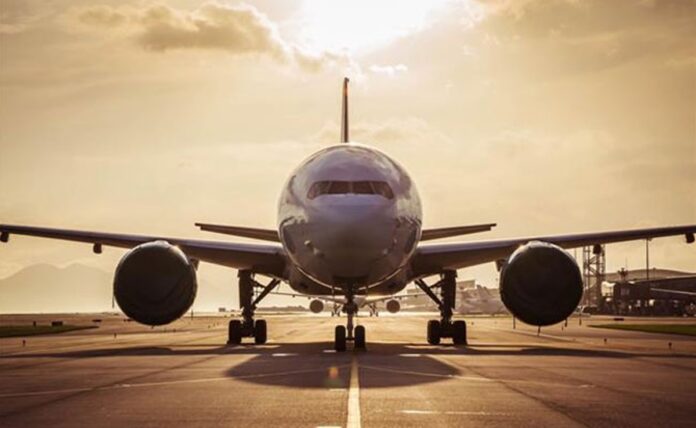New Delhi: In response to the ongoing closure of Pakistan’s airspace for Indian airlines, the Directorate General of Civil Aviation (DGCA) has introduced a set of new guidelines for airlines operating in the affected regions. The move comes as Indian airlines are forced to adjust flight paths, resulting in longer flight durations and the potential for technical stops.
As per the new advisory issued by the DGCA on Saturday, airlines must now provide passengers with clear, timely information about revised flight routes and extended travel times. Additionally, the DGCA has emphasized the importance of communicating the possibility of technical stops, where passengers will generally remain onboard, during these unscheduled halts.
Clear Communication with Passengers
The directive mandates that airlines must ensure that passengers are informed at check-in counters, boarding gates, and, where possible, through SMS or email alerts. “Airlines are required to clearly explain to passengers that these technical stops are operational and are necessary for safety and logistical reasons,” the DGCA’s advisory stated.
In-Flight Comfort and Medical Preparedness
The regulator also addressed passenger comfort amidst the disruptions. Airlines are now instructed to revise in-flight catering services to account for the extended flight times, which include providing more frequent meals, hydration, dry snacks, and any special meals as per passenger requests.
In addition to catering adjustments, the DGCA has prioritized medical preparedness on flights. Airlines are required to ensure that onboard first-aid kits are sufficiently stocked and that alternative airports used for technical stops are equipped with emergency medical support and ambulances.
Crew Training and Customer Service Preparedness
The DGCA also highlighted the need for crew readiness to manage passenger fatigue and discomfort due to longer journeys. Flight crews will undergo briefings on how to handle such challenges, as well as medical situations that may arise during the flight. Furthermore, airlines are expected to prepare customer service teams to assist with any delays, missed connections, or other travel disruptions in compliance with the Civil Aviation Regulations (CAR).






how can i get cheap clomid without dr prescription where buy generic clomiphene without prescription where can i get cheap clomiphene price get generic clomiphene online where can i get generic clomid pill order generic clomid online name brand for clomiphene
More posts like this would make the online elbow-room more useful.
Greetings! Utter productive recommendation within this article! It’s the crumb changes which wish obtain the largest changes. Thanks a portion quest of sharing!
azithromycin 500mg price – flagyl usa order metronidazole 400mg sale
purchase semaglutide without prescription – buy cyproheptadine 4 mg generic cyproheptadine 4mg price
oral domperidone 10mg – purchase tetracycline without prescription order flexeril
buy generic esomeprazole – anexa mate buy generic nexium 20mg
order generic warfarin 2mg – coumamide.com buy hyzaar without a prescription
buy meloxicam 7.5mg pill – https://moboxsin.com/ purchase meloxicam pills
purchase deltasone pills – apreplson.com oral deltasone 20mg
erectile dysfunction medicines – fast ed to take buy erectile dysfunction drugs over the counter
order amoxicillin without prescription – amoxicillin online buy order amoxicillin pill
order forcan generic – click order diflucan without prescription
order generic escitalopram 20mg – https://escitapro.com/ lexapro 20mg cheap
buy cenforce without prescription – site order cenforce 100mg pill
cialis reviews photos – https://ciltadgn.com/# cialis mexico
cialis india – https://strongtadafl.com/ cialis san diego
order ranitidine 150mg pill – ranitidine 150mg pill zantac where to buy
real viagra for sale – https://strongvpls.com/ how to order viagra online
I’ll certainly carry back to skim more. cenforce 100 comprar seguro
Palatable blog you have here.. It’s severely to find high quality writing like yours these days. I really recognize individuals like you! Take care!! https://ursxdol.com/clomid-for-sale-50-mg/
This is the big-hearted of scribble literary works I truly appreciate. https://prohnrg.com/
This is a topic which is forthcoming to my verve… Myriad thanks! Unerringly where can I upon the acquaintance details due to the fact that questions? site
Invest in good internet and a quiet workspace — it really helps.
Check out my web page: Live Chat Jobs
More posts like this would force the blogosphere more useful. https://ondactone.com/simvastatin/
More posts like this would persuade the online elbow-room more useful.
purchase colchicine online
The reconditeness in this tune is exceptional. http://bbs.dubu.cn/home.php?mod=space&uid=395580
buy dapagliflozin sale – https://janozin.com/# dapagliflozin 10mg cost
purchase xenical generic – buy orlistat paypal purchase orlistat online
More posts like this would add up to the online time more useful. https://experthax.com/forum/member.php?action=profile&uid=124777
You can shelter yourself and your family by being wary when buying panacea online. Some pharmacopoeia websites manipulate legally and provide convenience, secretiveness, sell for savings and safeguards for purchasing medicines. buy in TerbinaPharmacy https://terbinafines.com/product/atarax.html atarax
I’ll certainly bring to skim more. TerbinaPharmacy
The vividness in this serving is exceptional.
Khám phá thế giới giải trí trực tuyến đỉnh cao tại MM88, nơi mang đến những trải nghiệm cá cược thể thao và casino sống động.
Khám phá thế giới giải trí trực tuyến đỉnh cao tại MM88, nơi mang đến những trải nghiệm cá cược thể thao và casino sống động.
Khám phá thế giới giải trí trực tuyến đỉnh cao tại MM88, nơi mang đến những trải nghiệm cá cược thể thao và casino sống động.
kuwin sở hữu kho game đa dạng từ slot đến trò chơi bài đổi thưởng, mang đến cho bạn những giây phút giải trí tuyệt vời.
Đến với J88, bạn sẽ được trải nghiệm dịch vụ cá cược chuyên nghiệp cùng hàng ngàn sự kiện khuyến mãi độc quyền.